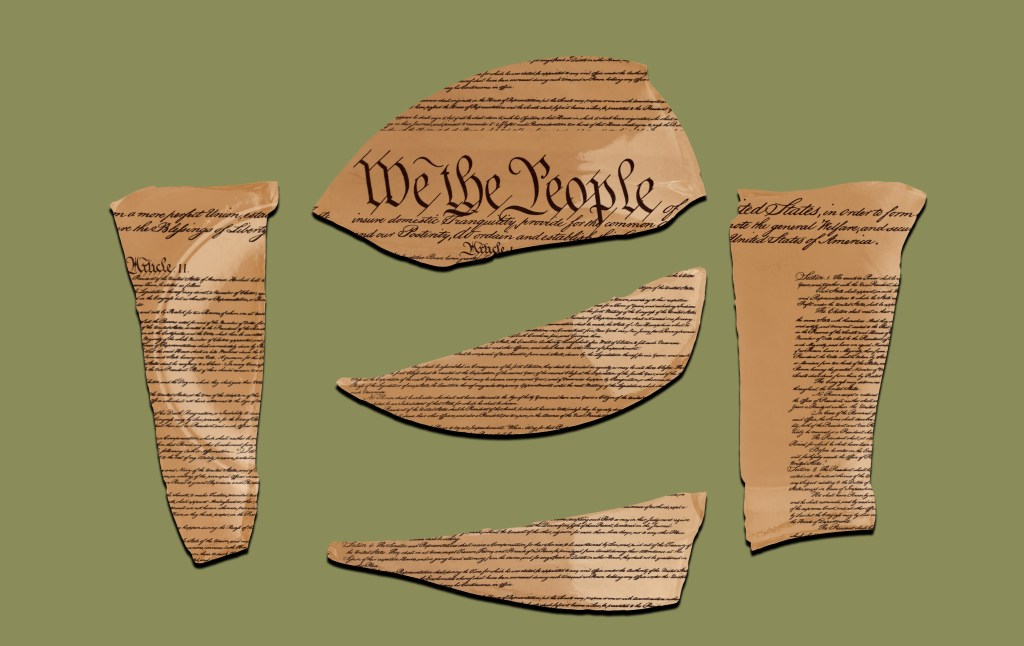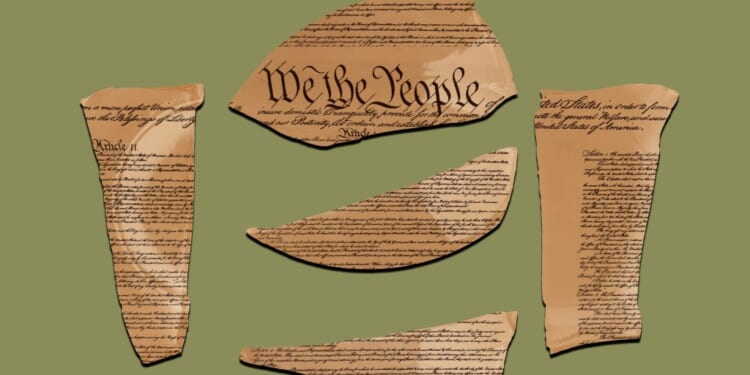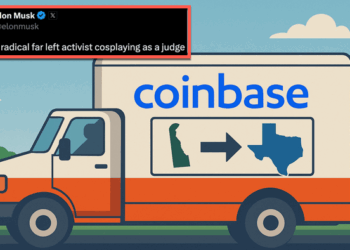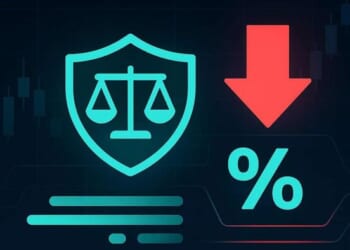
For starters, postliberalism isn’t necessarily any of these things. Of the prominent self-described postliberal intellectuals, very few are racists or antisemites as far as I know. Many of them are not nationalists, precisely because many of them (but not all) are sincere Catholics, and nationalism and Catholicism are often in tension. (For history buffs, this tension, real and alleged, is from whence we get the term kulturkampf, or “culture war.”)
Not all postliberals are conservative, either. The most famous postliberal of the last two centuries was Karl Marx, who explicitly argued that the liberal phase of history was a necessary chapter for the inevitable realization of communism. “What the [liberal] bourgeoisie therefore produces, above all, are its own grave-diggers,” Marx declared in The Communist Manifesto. “Its fall and the victory of the proletariat are equally inevitable.” After all, postliberalism literally just means “after liberalism.”
Anyway, for our purposes, here are some short(ish) definitions. I’ll stipulate that one can quibble with any of them. And if you are already up to speed, you can skip ahead.
Liberalism is the system of government most Americans recognize as legitimate: The rule of law, constitutionalism (written or unwritten), democratic accountability (i.e., politicians are accountable to voters), individual rights variously defined, and to one extent or another, commitment to the free market.
A postliberal is someone who believes that liberalism was either a mistake from the beginning (they heap a lot of scorn on poor John Locke), or—like Marx—argues as an objective observation that it is a spent force in need of replacement. The specifics of what that new replacement order should look like are often hard to find, and even when some give it a shot, I haven’t seen any that aren’t exceedingly vague, aspirational, platitudinous, or too narrow to be the basis of a consensus (I am open to correction).
Just so people understand why I say these things: Here’s political theorist Patrick Deneen insisting that liberalism was wrong from the beginning: “Liberalism has failed—not because it fell short, but because it was true to itself. It has failed because it has succeeded.” And here’s the description of what postliberalism is about, from the Postliberal Order Substack:
To speak of ‘the postliberal order’ is, at least on one level, simply descriptive of this fact [that liberalism has failed or is dying]. Yet on another level, it’s not at all clear what is emerging out of the ashes of liberalism. What sort of order can emerge?
This is a group newsletter by professors known for asking just this question, and also for trying to answer it as realists attentive to the common good. We’ll post regular observations about political philosophy, economy, law, and theology in order to think together about how an emergent order might arise which doesn’t exhaust us, but conforms us to what is good and true.
Defining nationalism has been an intellectual and academic cottage industry since the word first took off at the beginning of the 19th century. I think philosopher Ernest Gellner said it well: “Nationalism is primarily a political principle, which holds that the political and the national unit should be congruent.” It’s worth recalling that nationalism emerges as a rebellion against monarchy and empire. “Germany for the Germans” was the idea that corrupt dynasties and foreign rulers (I’m looking at you, Revolutionary and Napoleonic France, and at you, Habsburgs) should not rule over the German people. There were liberal nationalists, democratic nationalists, authoritarian nationalists, ethno-nationalists, and lord knows how many other flavors of nationalists. But the thing to keep in mind is that without a limiting principle—liberal values, democratic accountability, Christian safeguards, whatever—nationalism is hostile to the idea that the state should be impeded from fulfilling or realizing the “national will.” This is why unconstrained nationalism invariably leads to authoritarianism, because the state—and its leader—becomes the only legitimate and authentic arbiter of the (alleged) national will.
For our purposes, though, American nationalists or “national conservatives” don’t necessarily want that. I think it’s obvious that some dolts do—would-be Donald Trump appointee Paul Ingrassia once said that “Trump is the Constitution,” which is a very pithy expression of nationalist idiocy. From what I can tell, the natcons really believe in what might be called “nation-ism”—that the proper ordering of the world should be of essentially Westphalian nation states, and not some “globalist” or “transnational” system under the heel of the U.N., the EU, and other such institutions. The national conservative “Statement of Principles” includes some fairly unobjectionable stuff about religion and family, but its focus is on national independence and sovereignty. “We wish to see a world of independent nations. Each nation capable of self-government should chart its own course in accordance with its own particular constitutional, linguistic, and religious inheritance.”
Then there’s Catholic integralism. This is the view that religion, specifically the Catholic faith, should take precedence over the merely political. “Catholic Integralism is a tradition of thought that, rejecting the liberal separation of politics from concern with the end of human life, holds that political rule must order man to his final goal,” explains Edmund Waldstein. Humans have two rulers, but “since man’s temporal end is subordinated to his eternal end, the temporal power must be subordinated to the spiritual power.”
You can see here why integralism and nationalism can be in conflict, while postliberalism and integralism need not be (though it’s not impossible). But what all of these camps share is hostility to liberalism. The nationalists frame it more as anti-liberalism than postliberalism, but for practical purposes, that’s almost a purely academic distinction. They reject the integralist idea of subordinating the temporal power to the spiritual power, because what they really care about is subordinating the power or authority of liberal rules (as laid out in the Constitution, for example) to their own will-to-power masquerading as some avatar of “national identity.”
Oh, and finally, there are the groypers. This is a group of very online, mostly male, white nationalists, antisemites, trolls, and bigots. They apparently take their name from that stupid frog meme. Nick Fuentes, of “Team Hitler” fame, is one of their leaders.
The groyper moment.
Now, none of the serious people associated with any of these schools of thought would claim Fuentes as their own—certainly not publicly and, I would very much like to think, not privately either. Though he is a nationalist, and he’s definitely not liberal. He likes authoritarianism and would like to see America under “Catholic Taliban” rule.
Much of the anti-anti-Fuentes commentary falls into two categories: He’s just joking and he’s very popular with young nationalists, postliberal Catholics, and MAGA-friendly young men generally. About the latter, there’s reason to believe that is true. About the former, to the extent it’s true, I don’t care. He wants people to believe he’s serious, and the fact that significant numbers of people like him, listen to him, and follow his lead should be taken seriously all the same. There’s a lot of performative nonsense among left-wing radicals, too. It’s the rare conservative who writes off the Antifa radicals as mere performers.
The groypers are merely the latest iteration and online shock troops of the alt-right, which is not new either. It was the next generation of white nationalists, “paleocons,” and “neoreactionaries” associated with sites like VDARE, American Renaissance, the magazine Chronicles, the National Policy Institute, and figures like Curtis Yarvin, Richard Spencer, Paul Gottfried, and, after self-described Leninist Steve Bannon took it over, Breitbart, which Bannon sought to make the “platform for the alt right.” (In fairness to Breitbart, they’ve moved on from that. Oh, and Lenin was definitely a postliberal too.)
Not all of these people or others who were involved in these outlets necessarily share Fuentes’ views or are as proudly un- and anti-intellectual as he is. For instance, the late writer and consigliere to Pat Buchanan, Sam Francis, was a brilliant guy. He was also profoundly racist. But they all swam in the same waters and share a lot of intellectual and political DNA.
And they all flocked to Donald Trump in 2016. I want to be fair to Trump: I don’t think he has any clue who most of these people are, and to the extent he does, he just cares that they like him and hopes they don’t create too many headaches for him. But they flocked to Trump because they saw him as a battering ram against the status quo. Some projected on him racist and antisemitic views I don’t believe he holds. But for people who don’t like the liberal order—intellectual and groyper-gutter alike—he seemed providential.
That year, Jamie Kirchick attended a meeting of the National Policy Institute, an innocuously named hive of scum and villainy then run by Richard Spencer, a white supremacist. Spencer explained that he detested conservatives. “I’m more interested in identity … than they are in protecting capitalism or adhering to the Constitution or whatever gobbledygook conservatives believe,” he explained. “Conservatives have been damaging to the world” and “are fundamentally boring. I really want something that is more dynamic, about our identity.”
If you don’t know, for Spencer—the lead organizer of the 2017 Unite the Right Charlottesville rally where attendees chanted “Jews will not replace us!”—“our identity” meant white “real” Americans.
Spencer, ironically a former editor of The American Conservative (and fired by them), launched his own journal, Radix, in 2012. As Kirchick recounts, one contributor denounced our liberal Constitution as a “primitive article of antiquity” that “will not solve the problems we face in the 21st century.” The “cuckservatives” who show fealty to it are “paper worshippers,” “vellum supremacists,” and “parchment fetishists.” The Constitution “has ceased to be a vehicle for progress and has instead devolved into a major obstacle to our future. ”
That sounds awfully postliberal to me.
In 2019, Sohrab Ahmari wrote his “Against David French-ism” essay for First Things, a magazine edited by postliberal integralist R.R. Reno. (Full disclosure: I am reliably informed that Reno loathes me and has written that I exemplify “the decadence and dysfunction of today’s public discourse.”) Sohrab saw Trump as providential, too. He wrote:
In the United States, this great “no” culminated in 2016’s election of Donald Trump. With a kind of animal instinct, Trump understood what was missing from mainstream (more or less French-ian) conservatism. His instinct has been to shift the cultural and political mix, ever so slightly, away from autonomy-above-all toward order, continuity, and social cohesion. He believes that the political community—and not just the church, family, and individual—has its own legitimate scope for action. He believes it can help protect the citizen from transnational forces beyond his control.
Sohrab has donned many ideological uniforms, and I don’t know what insignia he pins on his chest these days. I will say he’s never been a bigot or antisemite. But his broadsides against David French-ism were certainly welcome by people I cannot say the same about. Oh, and his claim that Trump was a champion of “social cohesion” was frick’n hilarious.
Why David is right.
I can understand completely why intellectual nationalists and postliberals take offense at the suggestion they support Fuentes. But David didn’t make that charge, and their hurt feelings or embarrassment are irrelevant. It is just obviously true that the well-intentioned intellectuals helped move the Overton window toward anti-liberalism, which was a boon for anti-liberals. Sophisticated Marxists may roll their eyes at the idiocies spouted by the vulgar Marxists in their coalition, but sophisticated Marxists cannot be exonerated from the charge that they lend respectability to Marxism.
When you make the case for illiberalism, you give oxygen and maneuvering room to illiberals. Eggheads like Adrian Vermeule and camp followers like Josh Hammer are not bigots or antisemites (Hammer is Jewish, by the way, and the very antisemitic Candace Owens has outrageously and libelously accused him of conspiring to murder Charlie Kirk). But when you denigrate strict adherence to the Constitution in the name of “common good constitutionalism,” you open a door for people with a very different definition of the common good to make their case, including people who prefer particular evils. Patrick Deneen wrote called Regime Change that argued for just that. He wants it to be nonviolent if at all possible, but in America, the regime is the Constitution.
When you deride the free market as perfidious “neoliberalism” (it’s just liberalism, ffs), you open the door for protectionists, industrial planners, right-wing corporatists, and devotees of state capitalism or crony capitalism. You also open the door for socialists—and nationalists. Throughout the history of nationalism, the free market has almost invariably been one of those things nationalists eventually perceived and demonized as an impermissible impediment to getting the state congruent with the nation.
There are important and interesting differences between all of these postliberal and anti-liberal intellectuals, but as a practical political matter, they are irrelevant. The intellectuals declared that it’s “Caddy Day at the Bushwood Country Club” but are offended by the idea that they have any responsibility for what the caddies do in the swimming pool.
The still-unfolding Heritage Foundation fiasco is the result of more than a decade of right-wing popular frontism that has metastasized into illiberal popular frontism. In 2016, when I was subjected to a lot of bilious antisemitism from the alt-right, I was repeatedly told that I shouldn’t make a big deal about it because the important thing was defeating Hillary Clinton. It wasn’t that these people endorsed the memes of me (or David French’s daughter) in a gas chamber as Donald Trump, clad in an S.S. uniform, prepared to press the button. It was that we can’t give ammo to the enemy by calling too much attention to it. Make peace with people who say that your family should be in the ashtray of a Volkswagen, you know, for the greater good.
Now the vice president of the United States takes the same position about Republicans who talk that way. He dog whistles about real Americans being the sort of people whose ancestors fought in the Civil War (on either side!). It’s not a coincidence that Vance described himself as a member of the “postliberal right” and that he is “explicitly anti-regime.” Vance has been conspicuously silent on Fuentes and his foremost champion, Tucker Carlson. But prominent right-wingers are bending themselves into pretzels to explain why Tucker Carlson should be immune from any consequences for platforming Fuentes. Hell, Fuentes had dinner with Trump at Mar-a-Lago years ago. That’s quite a platform, too.
Perhaps the most infuriating thing about the new right’s popular frontism is that for all their talk about unity and a big tent, they have no problem excommunicating traditional conservatives—especially “neocons”—and Republicans whenever convenient. Leave the neo-Nazis alone, but get out of our tent, cucks, or Zombie Reaganites, or “BoomerCons”!
One of the things I learned at National Review is that if bad, crazy, or bigoted people claim that they are on your team, you cannot blame people for believing them if you don’t object. This was the lesson William F. Buckley Jr. learned early on. Robert Welch, the founder of the John Birch Society, insisted that President Dwight D. Eisenhower was a “dedicated, conscious agent of the Communist conspiracy.” Eisenhower’s brother Milton, the president of Johns Hopkins University, was also a Communist agent according to Welch, as were the secretary of state and the head of the CIA.
National Review and the John Birch Society had many overlapping donors and supporters. But it became impossible for Buckley to make serious arguments about national security without people assuming he saw the world the same way. So, he had to break with them and exile, as best he could, people like them from respectable or serious conservatism. It should be no surprise that Tucker Carlson thinks Buckley was one of the “great villains of the 20th century.”
But back to today: I am a small-government, traditional conservative who thinks the Constitution is a deeply moral expression of liberalism.
And that’s why I like it.
Unlike the common good constitutionalists and postliberals and many of the nationalists, I think its liberalism is the most important thing about it. Postliberals like to argue that it is simply a morally neutral “procedural document.” Sure, it lays out some procedures. But it does so to codify some of the hardest-learned moral lessons in human history. A fair trial is procedural. Your right to one is a profound moral statement and commitment. Your right to worship, speak, move, and associate as you please may come from God, the author of our rights, but the commitment to recognize and protect those rights is not morally neutral at all. Just because people take these rights for granted doesn’t mean that they’re just the natural landscape. They are hard-won moral victories.
Michael Brendan Dougherty says postliberalism doesn’t meaningfully exist. I have no idea what he’s talking about. It sounds a bit like he’s making a right-wing version of the “true socialism has never been tried!” argument. But in a sense, I kind of hope he’s right. Because here’s the thing: pre-liberalism was tried. It was the rule everywhere for most of human history, and contrary to the arguments of all of the postliberals and anti-liberals, the groypers and neo-reactionaries, pre-liberalism sucked for the vast majority of human beings.

















